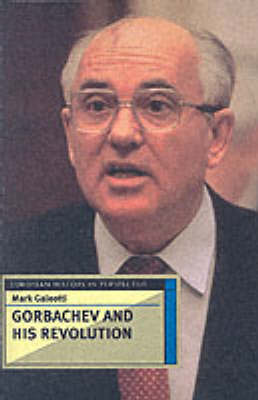European History in Perspective
1 total work
By turns radical, uncertain, ambitious, and autocratic, Mikhail Gorbachev in his bid to reform the Soviet Union has shaped the contemporary world. In 1985, he set out to modernize the Soviet state and revive his Communist Party. Instead, by the end of 1991, the USSR had fragmented and the Party was banned. Institutions which had survived for 70 years, notwithstanding Stalin's murderous purges and the Nazi war machine, proved unable to survive his well-meant reforms. This is a concise and lively introduction to the man and his times, setting them in the context of a decaying and ramshackle empire and an ideology long since betrayed by its professed followers. Simply and clearly, it follows Gorbachev's increasingly desperate attempts to control the forces he unleashed and hold together a state whose days were over. Ultimately, Gorbachev failed yet, as this study concludes, from his revolution arose an historic opportunity to redefine Russia's place in the world and break with a centuries-long autocratic tradition.
